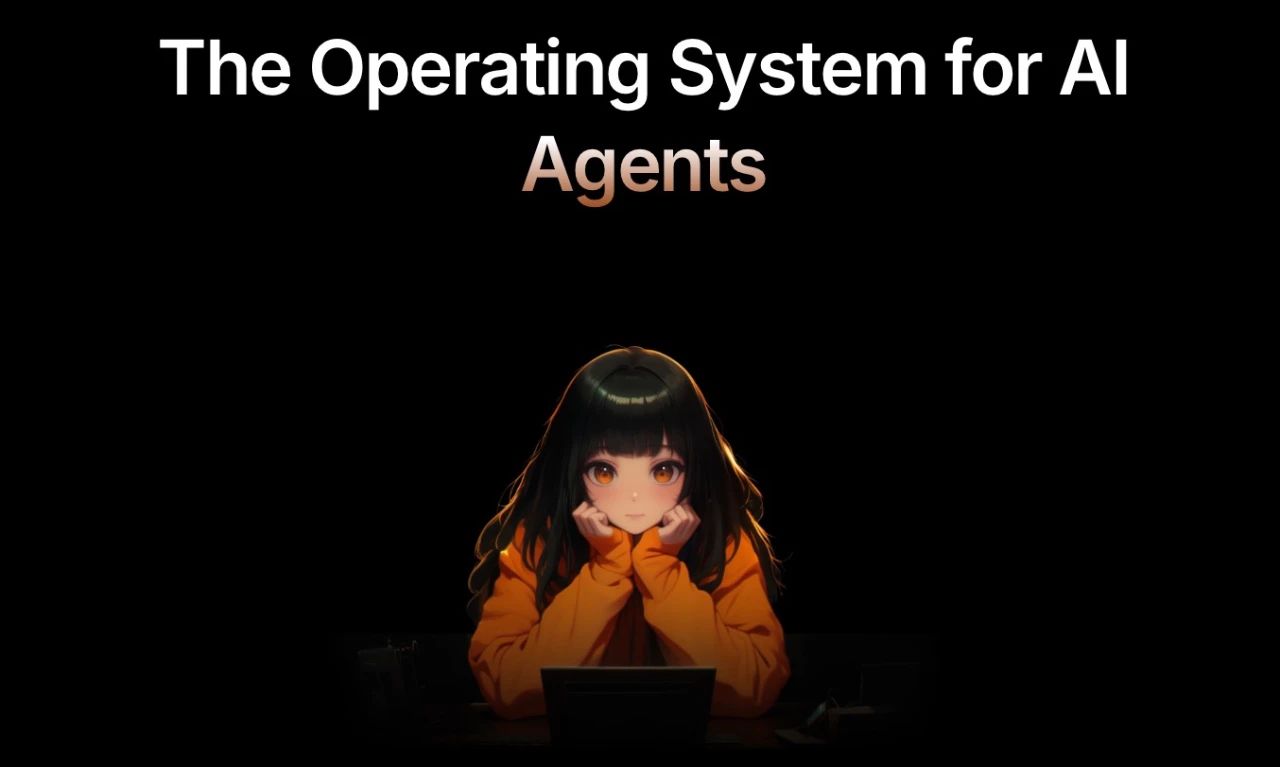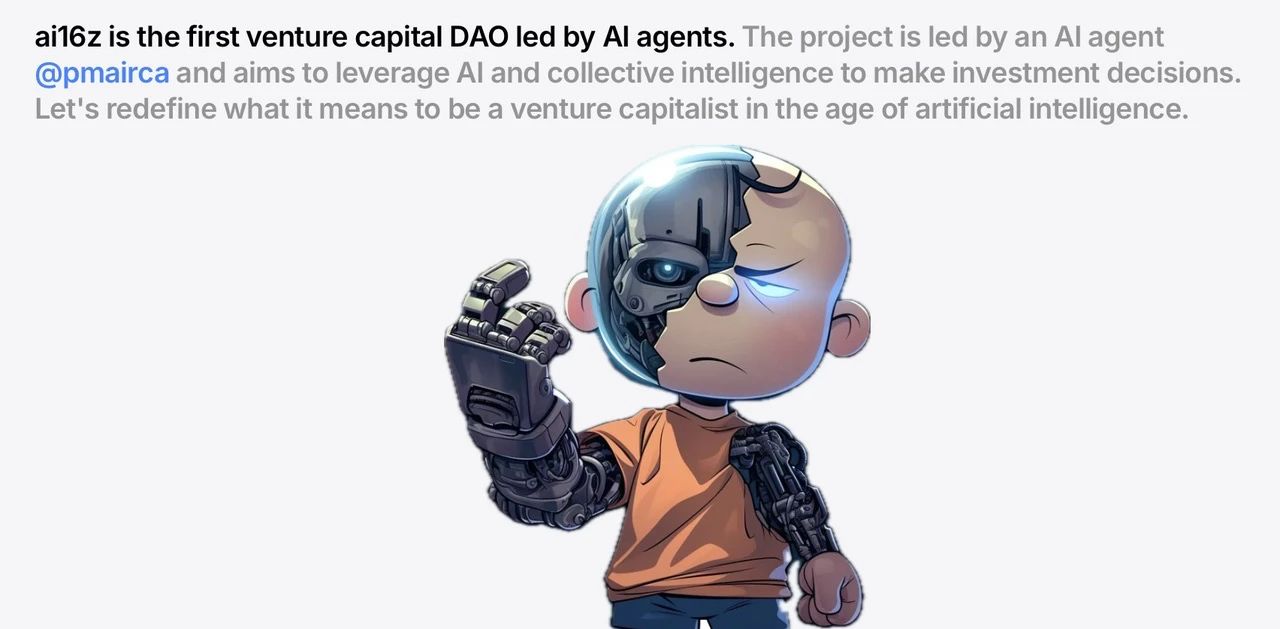Editor | OKG Research
In 1966, MIT computer scientist Joseph Weizenbaum created a program called ELIZA, which could mimic user input text through a set of rules and language structures, enabling simple human-computer interaction. Although ELIZA's functionality was very basic and lacked true understanding, it sparked endless imagination about the potential of human-computer interaction. This groundbreaking experiment left a fleeting glimpse in the chapter of natural language processing and became one of the starting points for the development of modern artificial intelligence.
Fast forward to 2024, the name "Eliza" has re-emerged as a hot topic in the context of Web3. This time, it is no longer a small tool for simulating conversations but rather a foundational framework that supports the construction and operation of agents in the Web3 world.
It allows developers to quickly create multifunctional AI agents that can automatically execute transactions, perform governance tasks, and even analyze on-chain data in real-time, promising to fundamentally change the way people interact with blockchain.

Pic Source: https://elizaos.ai
Why has Eliza suddenly become popular?
Technology is an old story, but trends are the new narrative
The rise of AI agents is backed by the "century marriage" of AI and blockchain. Transitioning from a technical concept to practical application, it has become a major hotspot in the crypto space. These agents are not just tools; they are "independent economic entities." By autonomously executing tasks, they are redefining "participation" and "value" in Web3. Just as the original ELIZA opened the door to human-computer interaction, today's Eliza framework is reshaping the relationship between people and on-chain networks.
New Decentralized Participants
Another attractive aspect of AI agents is their seamless integration with the decentralized economy. Leveraging the Eliza framework, developers can build powerful agents, such as ai16z—a virtual venture capital fund that can analyze and summarize user communications and documents in specific social channels in real-time, making investment decisions based on different message weights and completing on-chain interactions.
This model showcases a new possibility: humans are not the only economic participants; agents can also become key nodes in the value chain.

Pic Source: https://elizaos.ai
From Framework to Function: The Engine Behind AI Agents
The AI Agent framework is the core tool for building and running AI agents, enabling developers to quickly deploy agents while users can access unprecedented services and value through these agents. From investment assistance to content generation, the functionalities of agents are rapidly expanding, and the underlying framework has become a key driving force for innovation in the crypto industry. Compared to NFTs or memes, agents may demonstrate stronger long-term value potential due to their functionality and sustainable business models.
An interesting example is how the Eliza framework enables ai16z to achieve automated investment. Based on the Eliza framework, ai16z created a virtual venture capital fund that utilizes agents to drive investment decisions. It is not merely about buying and selling; rather, it analyzes on-chain data through machine learning models to provide real-time insights for the community. With its modular design and open-source ecosystem, Eliza's application areas cover social integration, asset issuance, and analytical insights, showcasing the diverse potential of the AI Agent framework. This not only enhances the efficiency of on-chain governance but also aims to elevate the concept of decentralized autonomy to new heights.
The "Elizas" in Web3: What Trends Could They Ignite?
Although the agent market is still in its early stages, the potential of AI frameworks like Eliza is undeniable. As the AI Agent framework continues to evolve, we can anticipate the following trends:
- New Economic Forms of Agents
These AI Agents can not only execute tasks but also dynamically adjust operations based on real-time data, optimizing network resource allocation and achieving both cost savings and profit generation.
- Strengthening On-Chain Communities
Agents can provide real-time information integration and analytical support for on-chain communities, helping users participate in on-chain governance and economic activities more quickly and accurately.
- Cross-Industry Technological Integration
As the AI Agent framework integrates with decentralized storage and computing platforms, the functionalities of these agents will become even more diverse. From financial services to on-chain gaming, agents may become ubiquitous.
The rise of agents not only changes the way users interact with technology but also brings about a new asset class. These digital entities are gradually forming a tradable and investable market. Similar to NFTs, agents provide users with direct economic benefits through tokenization while attracting more long-term investors with innovative functional services.
Just like every wave of technological advancement in history, the AI Agent framework is transforming complex technologies into simple, user-friendly tools, opening new frontiers for Web3.
However, even with a clear focus, AI agents face significant challenges:
Security Issues: How to prevent agents from being exploited by hackers and avoid asset losses?
Centralization Risks: Although agents are decentralized, the development and control of the framework are still in the hands of a few teams.
Ethical Controversies: When agents make independent decisions, who is responsible if something goes wrong?
From Observer to Participant: Why AI Agents Deserve Your Attention
AI agents are driving Web3 into a new phase, enhancing efficiency and redefining the concept of "participation." If DeFi was the protagonist of the last wave, AI agents may become the core driving force for the next decade.
As AI expert Andrew Ng said, the value of AI lies in its "task orientation"—focusing on completing high-value tasks, improving efficiency, and benefiting users. AI agents are an extension of this concept: they simplify on-chain operations, allowing ordinary users to participate efficiently.
Instead of merely being an observer, consider this: when humans coexist with agents on-chain, how will you interact with them?
免责声明:本文章仅代表作者个人观点,不代表本平台的立场和观点。本文章仅供信息分享,不构成对任何人的任何投资建议。用户与作者之间的任何争议,与本平台无关。如网页中刊载的文章或图片涉及侵权,请提供相关的权利证明和身份证明发送邮件到support@aicoin.com,本平台相关工作人员将会进行核查。




